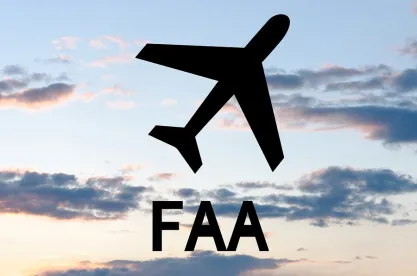Investigations of two Boeing 737 Max crashes that killed 346 people have revealed that whistleblowers notified the FAA of deficiencies in the 737 Max’s anti-stall system as early as August 2018. And in testimony at a Congressional hearing, Captain Chesley B. “Sully” Sullenberger III concluded that “these accidents should never have happened” and that the “current system of aircraft design and certification has failed us.” In particular, Captain Sullenberger found that the original version of the anti-stall software was fatally flawed and should not have been approved by the FAA.
The tragic deaths of airline passengers underscore the importance of protecting whistleblowers in the airline industry from retaliation. Fortunately, there is a federal statute known as the Wendell H. Ford Aviation Investment and Reform Act for the 21st Century (AIR21) that provides fairly robust protections for whistleblowers reporting concerns about air safety issues. This post summarizes key facets of the AIR21 whistleblower protection law.
Who is protected under the AIR21 whistleblower protection law?
The AIR21 whistleblower protection law prohibits retaliation against an employee of a U.S. air carrier, its contractor, or its subcontractor for blowing the whistle on a law or regulation related to air carrier safety.
What whistleblowing is protected under the AIR21 Whistleblower Protection Law?
AIR21 protects whistleblowers providing information relating to any violation or alleged violation of federal air carrier safety laws or FAA orders, regulations, or standards. Protected conduct includes:
- Disclosing a violation of an airline safety regulation to their employer or a federal government entity;
- Commencing a proceeding related to the violation of an airline safety regulation; or
- Testifying, assisting, or participating in a proceeding related to the violation of an airline safety regulation.
An AIR21 whistleblower need not prove an actual violation of a regulation, order, or standard relating to air carrier safety, as long as the whistleblower’s concern about a potential violation is reasonable. Furland v. Am. Airlines, Inc., ARB No. 90-102, ALJ No. 2008-AIR-011, slip op. at 5 (ARB July 27, 2011). Also, the whistleblower need not convey the basis for their reasonable belief in order for it to be protected. See Newell v. Airgas, Inc., ARB No. 16-007, ALJ No. 2015-STA-6, slip op. at 11 (ARB Jan. 10, 2018).
What type of retaliation is prohibited under AIR21’s Whistleblower Protection Provision?
AIR21 prohibits a wide range of retaliatory employment actions, including discharging, demoting, suspending, threatening, harassing, or in any other manner discriminating against a whistleblower in the terms and conditions of employment.
What is the burden of proof for a whistleblower in an AIR21 whistleblower retaliation action?
In an AIR21 retaliation case, the whistleblower prevails by proving that protected whistleblowing was a contributing factor in the unfavorable personnel action. The DOL ARB has emphasized that the standard is low and “broad and forgiving”; protected activity need only play some role, and even an “[in]significant” or “[in]substantial” role suffices. Palmer v. Canadian Nat’l R.R., ARB No. 16-035, ALJ No. 2014-FRS-154, at 53 (ARB Sept. 30, 2016). Examples of circumstantial evidence of causation include:
-
temporal proximity;
-
the falsity of an employer’s explanation for the adverse action taken;
-
inconsistent application of an employer’s policies;
-
an employer’s shifting explanations for its actions;
-
animus or antagonism toward the whistleblower’s protected activity; and
-
a change in the employer’s attitude toward the whistleblower after they engage in protected activity.
Once the whistleblower has proven that their whistleblowing was a contributing factor in the adverse actions taken against them, the employer can avoid liability only if it proves by clear and convincing evidence that it would have taken the same adverse actions in the absence of the employee engaging in protected conduct.
Damages or Remedies for Pilots in AIR21 Whistleblower Retaliation Cases
AIR21 authorizes several remedies to compensate whistleblowers, including:
-
back pay (lost wages and benefits);
-
emotional distress damages;
-
damages for reputational harm;
-
reinstatement or front pay in lieu thereof; and
-
lost future earnings.
How can an AIR21 whistleblower file a retaliation complaint?
Within 90 days of being informed of an adverse action, an AIR21 whistleblower can file a retaliation complaint with OSHA. The complaint can be filed online using OSHA’s Online Whistleblower Complaint Form, by facsimile, by mail, and even by phone.
Does the FAA enforce the anti-retaliation provision of AIR21?
OSHA investigates AIR21 retaliation claims, but pursuant to a Memorandum of Understanding, FAA investigates complaints related to air carrier safety and can take enforcement action as a result of disclosures made by AIR21 whistleblowers. FAA enforcement action may include air carrier and/or airman certificate suspension and/or revocation and/or the imposition of civil penalties. Additionally, the FAA may issue a civil penalty for a violation of the AIR21 whistleblower protection provision.
Do non-disclosure or confidentiality agreements bar whistleblowers from reporting information to the FAA?
In a guidance document titled Impact of Non-Disclosure and Confidentiality Covenants on Agency Investigations, the FAA clarifies that “[t]he use of non-disclosure and confidentiality covenants and related instructions to preclude the employee from engaging in confidential communication with the FAA runs afoul of well- established legal principles, recognized by Federal courts and regulatory agencies. Federal courts have held that confidentiality and non-disclosure covenants may inhibit an employee’s ability to provide information to governmental agencies empowered to ensure compliance with federal mandates and impede an agency’s lawful investigations of potential non-compliance.”
In other words, an airline’s confidentiality agreement does not trump the right of whistleblowers to report safety concerns to the FAA. However, whistleblowers should be cautious when disclosing safety problems to the media and should be careful not to gather evidence of safety violations in an unlawful manner.



 />i
/>i
